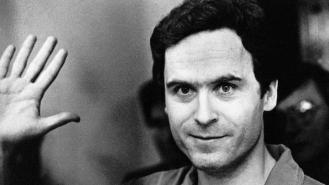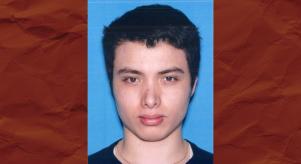
Linda Carty: The only British woman on death row
Women on Death Row follows the stories of the women who have been sentenced to the ultimate punishment - the death penalty. The show gives full access to the journeys of these women, from their crimes and convictions to their struggles living in prison. Episode one covers Linda Carty's case and is available to watch now on Crime+Investigation.
Now in her sixties, Linda Carty has been on death row in Texas for decades. This long wait isn’t unusual in the United States, but one thing about Carty sets her apart from other inmates in line for execution: she has British citizenship.
Who is Linda Carty?
Linda Carty was born in Saint Kitts in 1958. Back then, the Caribbean island was a British colony, which is why Carty holds British citizenship. In her formative years, she worked as a primary school teacher, sang in a national youth choir, and even gave a solo performance for the then-Prince Charles when he visited Saint Kitts.
In her early twenties, Carty moved to Houston, Texas where she studied pharmacology. It was during this time that Carty says she was approached by the Drug Enforcement Administration (DEA) to become an informant. This was apparently because her boyfriend at the time was, unbeknownst to Carty, a ‘big time drug dealer’.
Speaking to The Guardian from death row in 2007, Carty said she was given a background check and a code name and underwent high-level briefings. As she put it, she was ‘basically their surveillance girl without the badge’, getting close to traffickers and passing info onto the DEA. Many now regard this period of her life as highly relevant to Carty’s current predicament.
Why is Linda Carty on death row?
In May 2001, a group of men invaded the Houston apartment of a young woman named Joana Rodriguez. They beat her partner and kidnapped Rodriguez and her newborn baby. At some point after that, Rodriguez was bound, gagged and had a plastic bag put over her head. She was later found dead from suffocation, though the baby was later recovered unharmed.
During her trial, Linda Carty – who lived in the same apartment complex as Rodriguez – was presented as the mastermind of the crime. It was alleged that Carty had repeatedly lied about being pregnant to her estranged partner, Jose Corona, and wanted to steal Rodriguez’s baby to claim it as her own in order to persuade Corona to come back.
It was alleged that she’d used her DEA informant connections to recruit local criminals for the lethal raid, claiming Rodriguez possessed a hefty amount of drugs they could steal. It was also alleged she didn’t realise the baby had already been born and had planned to cut the foetus out of Rodriguez using scissors.
Swayed by the testimonies of the kidnappers who implicated Carty, along with other evidence such as her fingerprints being inside vehicles used in the crime, and phone records showing she had numerous calls with one of the kidnappers that night, the jury convicted Carty in 2002. She was sentenced to die by lethal injection.
Why is the Linda Carty verdict controversial?
Carty and her supporters have always protested her innocence, citing multiple reasons why the conviction should be thrown out. One is the alleged incompetence of her attorney – a much-maligned figure named Jerry Guerinot who has been dubbed ‘the most dangerous defence lawyer’ in America because of his notorious track record of losing capital murder cases.
The idea that Carty had planned to cut Rodriguez open with scissors has also been criticised. For one thing, being a close neighbour of Rodriguez, it seemed unlikely she wouldn’t have known she’d already given birth. For another, the scissors brandished in court by the prosecution were blunt and round-edged, incapable of being used in any kind of makeshift surgery.
Supporters also point to the lack of forensic evidence connecting Carty to the kidnapping victims and the unreliability of testimonies from known criminals who were then given lesser sentences. Carty maintains that they deliberately framed her as revenge for her work as an informant with the DEA, saying in an interview, ‘it was too difficult just to kill me, so they hatched this plot’.
Damningly, one of the kidnappers stated in a 2014 affidavit that prosecution attorneys had ‘threatened and intimidated’ him into providing testimony that helped convict Carty of murdering Rodriguez.
Carty’s former DEA handler, Charles Mathis, also submitted an affidavit accusing the prosecution of trying to keep him in line by threatening to interrogate him in court over an ‘invented affair that [he] was supposed to have had with Linda’. Mathis has since spoken out about Carty not having received a fair trial.
What will happen to Linda Carty?
Buoyed by support from family, friends and celebrities alike, Carty has made multiple unsuccessful appeals over the years.
In 2010, the British government submitted an official brief to the United States Supreme Court, sternly pointing out that British consular officials had not been immediately notified of Carty’s detention by Texas authorities. The brief emphasised that this was a breach of international law. Just as mystifying was the fact that her own trial counsel ‘made no attempt to correct that failure’, depriving Carty of the legal assistance that the British government could have provided.
In the words of the brief, such assistance would have uncovered ‘forceful mitigating evidence, including affidavits from top officials in Saint Kitts attesting to Ms. Carty’s good character and a clinical psychiatric assessment showing a disturbing history of abuse and trauma.’
Linda Carty remains on death row and may be handed an execution date at any point. If it is carried out, she will become the first British woman to be executed since Ruth Ellis in 1955.








